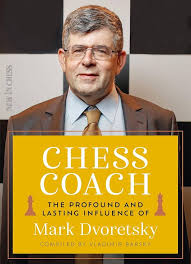
The Role of a Chess Coach: An Essential Guide

A chess coach is an invaluable resource for players of all levels, helping them develop their skills, sharpen their strategies, and navigate the complexities of the game. Whether you’re a beginner learning the basic moves or an advanced player aiming to perfect your tactics, a chess coach can provide the guidance and structure needed for improvement. Here’s a closer look at the role of a chess coach and how they can enhance your chess journey.
1. Personalized Learning
One of the most important roles of a chess coach is to offer personalized guidance. Unlike general chess tutorials or books, a coach tailors lessons to the individual’s needs. They can identify specific areas of weakness and help players address them directly, whether it’s opening strategies, endgame techniques, or tactics in between.
👉 Explore online resources like Chess.com Coaches Directory or connect with professionals on LinkedIn.
2. Structured Training Plans
A good chess coach creates a structured training plan that helps the player improve gradually. This plan typically includes a balance of theoretical lessons (such as studying famous openings or endgames) and practical exercises (like solving tactical puzzles or playing practice games). The coach will track progress and adjust the plan as needed, ensuring the player is continually challenged and engaged.
👉 Learn about effective training methodologies at The Chess Improver or join communities like Lichess.
3. Strategic Thinking and Problem-Solving
Chess is a game of strategy and critical thinking. A chess coach teaches players how to think several moves ahead, anticipate their opponent’s responses, and come up with creative solutions to difficult positions. They provide insights into how to build strong positions, control the board, and outmaneuver opponents through tactical play.
👉 Check out ChessBase’s resources for strategy tips or connect with chess experts on LinkedIn.
4. Game Analysis
After every game, a chess coach will often analyze the match with the player. This includes identifying mistakes, missed opportunities, and key moments that could have been played better. Game analysis is crucial for growth, as it allows players to understand what went wrong and learn from their errors.
👉 Platforms like Chess.com Analysis and Lichess Analysis Board are perfect tools for post-game reviews.
5. Building Confidence and Motivation
A chess coach plays a key role in boosting a player’s confidence. By offering constructive feedback and recognizing progress, the coach encourages a positive mindset and motivates the player to keep improving. For many players, a coach provides the emotional support needed to stay focused and committed to their chess development, especially during challenging times.
👉 Follow chess coaches on LinkedIn for inspiring stories and advice, such as Susan Polgar or Maurice Ashley.
6. Preparing for Competitions
For players who compete, a chess coach is essential for preparing for tournaments. The coach will guide the player through opening preparation, help them understand the types of opponents they might face, and develop strategies to succeed in competitive settings.
👉 Explore upcoming tournaments on platforms like FIDE’s Calendar or follow event-specific groups on LinkedIn to stay updated.
7. Understanding Chess Beyond the Board
Lastly, a chess coach helps players understand the deeper philosophy of the game. Chess is not just about moves and tactics; it also teaches valuable life skills such as patience, resilience, focus, and discipline. A coach often helps students recognize how lessons learned on the chessboard can apply to other areas of life, from decision-making to problem-solving.
👉 Read about the life skills chess teaches on Medium’s Chess Section or connect with thought leaders like Garry Kasparov on LinkedIn.
Conclusion
The role of a chess coach is multifaceted and critical for any serious player. From personalized lessons to psychological support, a chess coach helps players refine their game, develop strategic thinking, and excel in competition. Whether you are just starting or aiming to become a grandmaster, a chess coach can make a significant difference in your chess development.
If you’re ready to take your chess skills to the next level, start your journey with platforms like Chess.com Coaches or find experienced mentors on LinkedIn.

Chessby: Connecting Chess Enthusiasts Worldwide
Chessby is a unique platform designed to bridge the gap between the digital and physical worlds of chess. Its main purpose is to connect chess enthusiasts by helping them find local places, events, and players for in-person games. Whether you’re a casual player looking for a friendly match at a nearby café or a competitive player seeking tournaments, Chessby provides the tools to build meaningful connections through chess
